- Home
- S. E. Smith
A Cowardice of Crows
A Cowardice of Crows Read online
Table of Contents
Dedication
The Premise
One
Two
Three
Four
Five
Six
Seven
Eight
Nine
Ten
Eleven
Twelve
Thirteen
Fourteen
Fifteen
Sixteen
Seventeen
Eighteen
Nineteen
Twenty
Twenty-One
Twenty-Two
Twenty-Three
Twenty-Four
Twenty-Five
Twenty-Six
Twenty-Seven
Twenty-Eight
Twenty-Nine
Thirty
Thirty-One
Thirty-Two
Thirty-Three
Thirty-Four
Thirty-Five
Thirty-Six
Thirty-Seven
Thirty-Eight
Thirty-Nine
Forty
Forty-One
Forty-Two
Forty-Three
Forty-Four
Forty-Five
Forty-Six
Postscript
The History
A Cowardice of Crows
S. E. Smith
This is a work of fiction. Names, characters, businesses, places, events, locales, and incidents are either the products of the author’s imagination or used in a fictitious manner. Any resemblance to actual persons, living or dead, or actual events is purely coincidental.
Text copyright © 2016 Revised & updated 2017 and 2020 by Sarah E Smith. All rights reserved.
No part of this book may be reproduced, or stored in a retrieval system, or transmitted in any form, or by any means, electronic, mechanical, photocopying, recording or otherwise, without express written permission of the publisher.
First Edition published in Great Britain 2016
Second Edition published in Great Britain 2018
Third Edition published 2021 by Ship's Dog Publishing, Cambridgeshire
www.shipsdogpublishing.pubwww.shipsdogpublishing.pub
Edited and formatted by Let’s Get Booked
http://www.letsgetbooked.com
Proofread by Nobel Owl Proofreading
http://www.nobleowlproofreading.co.uk/
Cover created by Toni Murphy
https://moretonic.co.uk/
Chapter headings & dividers:
Illustration 153260074 ©Tanais-tanais | Dreamstime.com
Paperback ISBN: 978-1-913730-07-9
Ebook ISBN: 978-1-913730-06-2
Holly, for medical things
Laura, Maria, David, Toni and Bobby for tattoo knowledge
Lynn, for encouragement.
Sometimes death is simple: for all intents and purposes, an open-and-shut affair. An old man dies in his sleep, a child trips and falls down the stairs, a woman goes under a train as it hurtles through a tunnel.
All tragic in their ways, all mourned: all above board. No need for the police, except to confirm what the family already knew.
The old man’s heart gave out. The child – not watching where they were going – simply tripped and fell. The woman, unhappy in love, chose a violent way to end her life.
Except ...
Looks can be deceiving.
Note from: William Melville MO3, and sent to Arthur James Balfour, Prime Minister, July 1902
Sir,
Unless otherwise indicated (as extracts from individual reports, journals and diaries) the following account is compiled from the testimony of eyewitnesses, and those closely involved with the case. For ease, they have been identified purely as “From Reports” – rather than naming the individuals concerned.
From Reports.
London, Thursday October 4th, 1900.
Muffled against the night, an ugly-looking brute barged past an elderly lady, slammed his money under the nose of the ticket seller, and demanded a return to Brighton. Then he ran – as though possessed by the devil, along the platform towards the engine. There were plenty of empty carriages, but he was focussed on one door in particular, and reached it just as the train was beginning to chug slowly on its way. The carriage door opened, and the man swung himself into the compartment.
“Strange place for a meeting! Would have thought you’d have been better working out of a hotel, given what you do for the old man,” he said to the willowy – tartily dressed, and a little overdone with the make-up – woman who let him in.
Millie didn’t bother to acknowledge the newcomer’s arrival or move her handbag, forcing the man to sit opposite, with his back to the engine. “Trains are private,” she told him when she eventually deigned to speak. “Carriage like this. Two exits. Can see who’s coming and you don’t get no interruptions. ‘Specially if you bribe the conductor.” Millie leant forward, allowing the man a good glimpse of bosom. “Want a bit of bribery, love?” He flushed and she sniggered. “Don’t recall you being a shy one.” Her laughter grew louder.
Attempting to ignore her, the man went to open the window, causing smoke to gush into the confined space.
“Oi don’t do that,” Millie snapped. “We’re coming up to Merstham tunnel. It’ll smoke like Canton Sue’s bleedin’ opium den if you don’t shut the window.” She pushed past the man and slammed it so hard the window rattled in its casing. “Look stop crowdin’ me,” Millie ordered as the man moved towards her.
He held his ground, blocking the door to the corridor as he did so. “Where’s the stuff, Millie?” he snarled. “You got them on you ... in that purse of yours?”
“Not so fast,” she replied as her eye darted to her bag. “You’ll get your photographs and the letter when I get me money. All of it. Every last shilling.” The carefully turned out blond emphasised her point by poking her companion with a kid gloved finger.
“You little cow!” He lunged for her purse but Millie was too quick for him, hiding it behind her back – firmly out of his reach.
“Takes one to know one.” She laughed again – a shrill bitter sound that ricocheted around the compartment. “Now are you going to pay up or am I going to tell her and the pawnbroker what’s going on?”
As if to emphasise her threat, the train whistle sounded and for a brief moment, until the carriage lights flared, they were in darkness.
“Don’t you dare, Millicent Jones!” he snarled.
“Then pay up and I won’t tell him about you ... or...!”
With another oath, the man rummaged in his pockets and withdrew an envelope full of cash. He stared at it briefly. Had Millie been paying any attention she might have been worried about the cunning, almost weasel-like expression that flickered across his face. As it was: she only had eyes for the money.
Money, which he all but threw at her. “Take that! It’s all you’re getting. And if you try for any more …”
“Yeah right! You’ll pay ... as much as I tell you to, as often as I tell you. Too much to lose if you don’t. Gold don’t like people diddling him!” Grinning with the confidence of one who’s got her own way, Millie turned on her patent heels and began counting the cash. “Now sit down like a good little boy,” she told him in a patronising, schoolmarm tone. “And don’t say anything ‘til we’re out of this bleedin’ tunnel. And let’s hope you ain’t tried to diddle me either. Ten. Twenty ...”
Millie was so engrossed that she didn’t realise there was anything around her neck until it was too late.
She struggled. Put up a fight. But the wire bit tight into her skin and wouldn’t budge. Her eyes bulged, her feet slipped from under her; splayed outwards at an unnatural angle. The man turned t
he ends of the scarf once more for good measure ... and it was over.
With a laugh, he pushed her body onto the seat, grabbed the wad of cash and stuffed it in his pocket. Then he opened the internal door to let a second man into the compartment. “The picture and that lying letter’s in the purse. Get them!” he ordered as his accomplice shut the door carefully. “We’ll take the case and search for her bloody diary later.”
This second man, slightly thinner, prettier, and more professional looking than his companion, nodded and set to work. “Got them.”
Ugly man took a cufflink out of his pocket. “Now, let’s see the pawnbroker wriggle his way out of this!” he said as he dislocated Millie’s jaw and shoved the piece as far down her throat as he could get it. Then he punched the dead woman until the cheekbones cracked and her face flattened. “Give us your scarf man. I don’t want them finding out how we did it!”
“You and your bloody theatrics!” his companion snarled. “We’ll be out of the tunnel if we ain’t careful.”
As the external door swung open, filling the compartment with smoke in the way Millie predicted, the two men got to work. Dragging the dead woman into an upright position, the wirier of the two gave one hard shove, and Millicent Jones – who had always been so careful of her appearance in life – fell under the train.
From the Casebook of Symington, Earl Byrd.
Mayfair, Thursday November 1st.
Why was I brought in? Excellent question.
At first glance, Miss Jones’ death bore all the appearance of a suicide. But the police surgeon had suspicions that went further than the usual post-mortem afforded to such an unfortunate wretch. His subsequent gruesome discovery brought the matter to my cousin Chief Inspector Sir Charles Carter (CC to his friends) and it was he who involved me. For within minutes of reading the police surgeon’s report, he dispatched a rider to my Mayfair flat, said report burning a proverbial hole in his satchel.
But I’ll be honest, brutal though her death was, that event did not bring the messenger to my door. My involvement was required because the cufflink stuffed down her throat contained the House of Commons insignia.
From Reports.
Friday 2nd November, 12pm.
A shy, unassuming man with a sight stoop caught the noon train to Brighton. Aged about forty, he positioned himself in the corner seat of a second-class carriage and stared out of the window at the passing scenery. Every so often he glanced at his well-worn, half-hunter and noted something down in the pages of a little black notebook; but otherwise, he was no trouble to the other people who travelled with him from London.
When the train entered Merstham tunnel he tensed, and a motherly lady with big hips, and overly loud breathing which drew all eyes to her, patted his arm and made soothing noises. He thanked her in a whisper and continued to sit upright until the tunnel section of the journey was complete. Danger past, he leaned back and closed his eyes; relaxed and able to watch the view.
Ten minutes before the train’s arrival in Brighton, the compartment door opened.
“Mr Sampson?”
The shy man jumped – dislodging the bowler from his lap and sending it to the floor in a heap of confusion.
“Yes?”
“The earl requests you attend him in first, sir.”
“Yes ... Yes ... Thank you.” The man rescued his hat from the motherly lady, who swooped with surprising speed to retrieve it, and stood up. Profuse with his apologies, he gave a slight wave and left the compartment.
At the station, the motherly woman looked out for the shy man amongst Earl Byrd’s very noticeable entourage. But while she could see a burly porter pushing a trolley laden with cases, a ramrod backed valet (who had clearly seen military service) and the earl himself, there was no sign of the shy man. Instead of appearing perturbed by his absence, the motherly woman grinned and hobbled her way to the ladies cloakroom, where an attendant later found a pair of boots stuffed with newspaper.
From the Casebook of Symington, Earl Byrd.
Brighton.
On seeing my entourage arrive, the manager of The Grand Hotel came out of his office to greet me. A well-built man with slick black hair and a commanding demeanour, Andrewes had the reputation for being the soul of discretion, rising steadily from the ranks of bootboy to his current, lofty position.
“My lord, it’s good to see you,” he said, capturing my hand in a firm grip as he spoke. There was a faint Derbyshire twang to his words that twenty years in Brighton failed to completely eradicate, and a bit of a tan to the man’s face.
“And you too, Andrewes. You too. I trust you enjoyed your holiday. Your mother, she’s ... well?” Genuinely interested in the man’s family – for his mother rescued me from the clutches of an unscrupulous young lady last time I stayed here – I waited for the answer.
Andrewes smiled. “I did, my lord. And yes, Mum’s well – bent double with rheumatism – but fighting fit as the saying goes. Thank you so much for the Blue Train tickets. Mum so enjoyed Marseilles.”
“And enjoying her garden now you’ve successfully tamed the roses?” I replied quickly to spare my blushes. I watched Andrewes stare at his hand in confusion until he registered the nearly healed scratches.
“Indeed, my lord.” He looked up; his face wreathed in professional sadness. “Mr Sampson tells me this is a fleeting visit?”
“Only one night alas. And dining out. Please assure Maximilian that the Prince’s chef’s a pale substitute.”
He gave a proprietorial smile. “Rest assured, I’ll let Chef know the slight’s not intentional.”
“But before then,” I said quietly, as we crossed the hotel lobby, “I need to go out.” A pause to ascertain we were not overheard. “But no doubt Sampson’s communicated all the necessaries?”
Andrewes nodded. “And Watkins is in the usual place.” The hotelier paused and stared back down at his hands. “But before you go, may we ... talk ... in my office? A delicate matter ...” His hands twitched nervously, and although I wanted to get to my room and ready myself to meet the police surgeon, I knew that Andrewes would not ask for a private word unless it was urgent.
I bit back a sigh. “I’ve time now.”
Once settled in the manager’s inner sanctum, I politely declined the offer of a drink. “This evening’s festivities, you understand? But don’t let me stop you. You appear slightly frazzled, Andrewes.”
He smiled wanly before handing me a piece of pink paper – two inches by three inches. On first glance, it appeared to be a receipt for a place called Gold’s in Whitechapel. I raised a well-manicured eyebrow and stared at the manager. “A pawnbroker’s ticket?”
“I agree, my lord.” Andrewes picked up the nuance immediately. “Under normal circumstances, I wouldn’t have troubled you with such a thing, but ... well ... the under-housemaid found it in your suite this morning. And she swears blind it wasn’t there when she aired the room yesterday.” Andrewes looked apologetic.
“I see. A reliable girl?”
“Yes. Not been with us long, a fortnight ... if that. A homely woman; a little plain ... competent ... No complaints – lives out. A girl of sober habits.”
I didn’t reply. The piece of paper was interesting. The girl was not. My initial inspection led me to assume it had been creased, but on closer perusal, I discovered the corner had been folded, carefully. “Where’d she find it?”
When it became clear Andrewes was having trouble answering, I looked up to find him staring at the desk in obvious embarrassment. “Go on Andrewes, it takes a lot to disconcert me.” I tried to keep my voice light in order to get him to tell me more. It didn’t work for, if anything, he became even more interested in the contents of his desk.
Eventually, though, he dragged himself into speech. “I’m sorry to say, my lord, it was found in your bedchamber.”
“Where, exactly?” I asked, steepling my fingers in prayer.
The hotel manager’s embarrassment grew.
“A
ndrewes, tell me.”
He sighed. “It’s rather embarrassing for the hotel and I understand if you wish to withdraw your patronage ...”
I stared. He gulped. “I’m sorry to admit this, but she found it on your pillow.”
Sampson, my former batman and now my valet, waited for me in the beautifully appointed penthouse apartment. He held a drink in one hand and hat and coat in the other.
“Well, Major? What did Andrewes want?”
I didn’t answer immediately, contenting myself with downing the whisky in one. “Just because you’ve been with me longer than forever, doesn’t give you the right to act like my grandfather,” I groused.
“I wouldn’t dream of it,” my valet replied with a smile. “I am merely aware that as His Royal Highness and the Keppels are in town, time is of the essence. And as Andrewes knew that, it must have been urgent to interrupt your preparations.”
“Damn it! They weren’t supposed to be arriving until six. This alters things. What time am I expected? No, don’t answer that!” I poured another drink but didn’t touch it. “Sampson, take the night off. Take the under-housemaid out for a drink when she gets off duty. I have it on splendid authority she’s a good girl. A bit plain, but I’m not asking you to make love to her, just find out what you can about her.”
Sampson seemed pained. Taking the under-housemaid out for the evening was not his idea of fun. But necessity is a strange master, and I had no time for his squeamishness.
“Any particular reason, my lord?”
I grinned. Sampson only used that title when irritated, embarrassed, or we had company.
“We’ll discuss it later, Sergeant.” I was dismissive. “Just find out what she knows about a pawnbroker’s ticket.”
Ignoring my valet’s squawk of protest, I handed him the still full glass, picked up a black Gladstone bag and headed out the door. “I’ll be back by seven. Have my bath ready. Mortuaries are frightful places – sterile and smelly. You may even need to burn my clothes!”

 The Sea King's Lady
The Sea King's Lady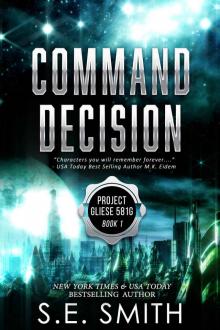 Command Decision
Command Decision A Dragonlings' Easter
A Dragonlings' Easter Dagger's Hope
Dagger's Hope Embrace the Romance
Embrace the Romance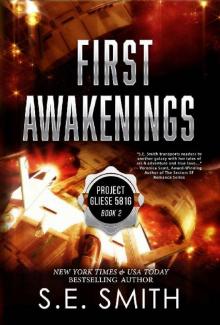 First Awakenings
First Awakenings Capture of the Defiance
Capture of the Defiance Indiana Wild
Indiana Wild 02 Dragon - Capturing Cara
02 Dragon - Capturing Cara The Sea King's Lady_A Seven Kingdoms Tale 2
The Sea King's Lady_A Seven Kingdoms Tale 2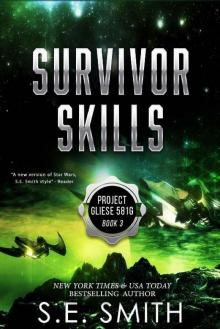 Survivor Skills
Survivor Skills Tink's Neverland
Tink's Neverland Voyage of the Defiance
Voyage of the Defiance Merrick's Maiden
Merrick's Maiden Taking on Tory
Taking on Tory Twin Dragon’s Destiny
Twin Dragon’s Destiny Night of the Demented Symbiots
Night of the Demented Symbiots Hunter's Claim
Hunter's Claim Choosing Riley
Choosing Riley The Dragonlings’ Very Special Valentine
The Dragonlings’ Very Special Valentine Dust 2_A New World Order
Dust 2_A New World Order Touching Rune
Touching Rune Hannah's Warrior
Hannah's Warrior Edge of Insanity
Edge of Insanity Alphas Unleashed
Alphas Unleashed Destin's Hold
Destin's Hold The Old Dragon of the Mountain's Christmas
The Old Dragon of the Mountain's Christmas The Magic Shell
The Magic Shell The Sea Witch's Redemption
The Sea Witch's Redemption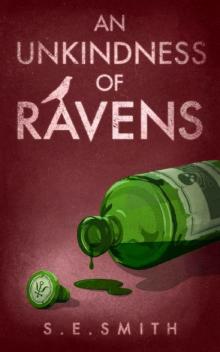 An Unkindness of Ravens
An Unkindness of Ravens Capturing Cara
Capturing Cara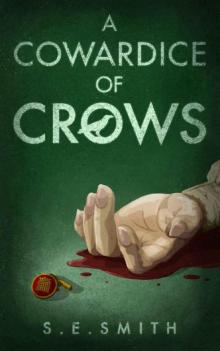 A Cowardice of Crows
A Cowardice of Crows Roam's Valentine Wish
Roam's Valentine Wish The Dark Prince's Prize (Curizan Warrior Book 2)
The Dark Prince's Prize (Curizan Warrior Book 2) Pets in Space® 4
Pets in Space® 4 Ha'ven's Song
Ha'ven's Song Viper's Defiant Mate
Viper's Defiant Mate Cosmos' Promise
Cosmos' Promise The Monster's Caress: A Seven Kingdoms Tale 8 (The Seven Kingdoms)
The Monster's Caress: A Seven Kingdoms Tale 8 (The Seven Kingdoms) Heart of the Cat
Heart of the Cat Alexandru's Kiss
Alexandru's Kiss Gracie's Touch
Gracie's Touch Saving Runt
Saving Runt Jo's Journey
Jo's Journey Tilly Gets Her Man
Tilly Gets Her Man Cornering Carmen
Cornering Carmen Jaguin's Love
Jaguin's Love For the Love of Tia
For the Love of Tia Twin Dragons
Twin Dragons Risteard’s Unwilling Empress
Risteard’s Unwilling Empress Madas's Falling Star featuring Madas's Unexpected Gift
Madas's Falling Star featuring Madas's Unexpected Gift Tansy's Titan
Tansy's Titan A Dragonlings' Haunted Halloween
A Dragonlings' Haunted Halloween Abducting Abby
Abducting Abby The Warrior’s Whisper (The Fairy Tale Series Book 2)
The Warrior’s Whisper (The Fairy Tale Series Book 2) A Dragonlings' Magical Christmas
A Dragonlings' Magical Christmas Lily's Cowboys
Lily's Cowboys Spirit Warrior
Spirit Warrior Pearl's Dragon
Pearl's Dragon Krac's Firebrand
Krac's Firebrand The Dragon's Treasure
The Dragon's Treasure The Magic Shell: A Seven Kingdoms Tale 6 (The Seven Kingdoms)
The Magic Shell: A Seven Kingdoms Tale 6 (The Seven Kingdoms) Core's Attack
Core's Attack Ambushing Ariel
Ambushing Ariel Paul's Pursuit: Dragon Lords of Valdier Book 6
Paul's Pursuit: Dragon Lords of Valdier Book 6 Star's Storm
Star's Storm Razor's Traitorous Heart
Razor's Traitorous Heart The Alliance Boxset 2
The Alliance Boxset 2 Hannah's Warrior: Cosmos' Gateway Book 2
Hannah's Warrior: Cosmos' Gateway Book 2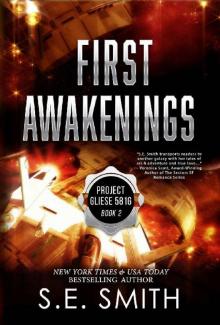 First Awakenings: Science Fiction Romance (Project Gliese 581g Book 2)
First Awakenings: Science Fiction Romance (Project Gliese 581g Book 2) A Pirate's Wish
A Pirate's Wish Dust: Before and After
Dust: Before and After The Dragonlings' Haunted Halloween 2: Night of the Demented Symbiots (Dragonlings of Valdier)
The Dragonlings' Haunted Halloween 2: Night of the Demented Symbiots (Dragonlings of Valdier) Pets in Space: Cats, Dogs, and Other Worldly Creatures
Pets in Space: Cats, Dogs, and Other Worldly Creatures Capturing Cara (Dragon Lords of Valdier Book 2)
Capturing Cara (Dragon Lords of Valdier Book 2) The Beast Prince (The Fairy Tale Series Book 1)
The Beast Prince (The Fairy Tale Series Book 1) Twin Dragons: Dragon Lords of Valdier Book 7
Twin Dragons: Dragon Lords of Valdier Book 7 Cosmos' Promise: Cosmos' Gateway Book 4
Cosmos' Promise: Cosmos' Gateway Book 4 Jaguin's Love: Dragon Lords of Valdier Book 8
Jaguin's Love: Dragon Lords of Valdier Book 8 For the Love of Tia: Dragon Lords of Valdier Book 4.1
For the Love of Tia: Dragon Lords of Valdier Book 4.1 A Warrior's Heart
A Warrior's Heart Indiana Wild (Spirit Pass Book 1)
Indiana Wild (Spirit Pass Book 1) The Sea King's Lady: A Seven Kingdoms Tale 2 (The Seven Kingdoms)
The Sea King's Lady: A Seven Kingdoms Tale 2 (The Seven Kingdoms) The Dragon’s Treasure: A Seven Kingdoms Tale 1
The Dragon’s Treasure: A Seven Kingdoms Tale 1 Razor's Traitorous Heart: The Alliance Book 2
Razor's Traitorous Heart: The Alliance Book 2 River's Run (Lords of Kassis: Book 1)
River's Run (Lords of Kassis: Book 1) Choosing Riley: Sarafin Warriors Book 1
Choosing Riley: Sarafin Warriors Book 1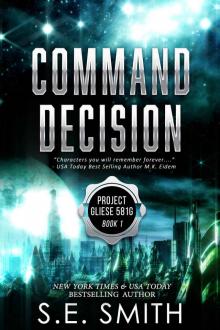 Command Decision: Project Gliese 581g
Command Decision: Project Gliese 581g Hunter's Claim: The Alliance Book 1
Hunter's Claim: The Alliance Book 1 A Touch of Frost
A Touch of Frost A Dragonlings' Haunted Halloween: Dragonlings of Valdier
A Dragonlings' Haunted Halloween: Dragonlings of Valdier Gracie's Touch Zion Warriors 1
Gracie's Touch Zion Warriors 1 Ristèard Unwilling Empress
Ristèard Unwilling Empress Abducting Abby (Dragon Lords of Valdier: Book 1)
Abducting Abby (Dragon Lords of Valdier: Book 1) The Dragonlings and the Magic Four-Leaf Clover
The Dragonlings and the Magic Four-Leaf Clover Ella and the Beast (More Than Human Book 1)
Ella and the Beast (More Than Human Book 1) Tink's Neverland (Cosmos' Gateway Book 1)
Tink's Neverland (Cosmos' Gateway Book 1) A Witch’s Touch
A Witch’s Touch A Dragonlings' Magical Christmas: Dragonlings of Valdier Book 1.3 (Dragonlings of Valider)
A Dragonlings' Magical Christmas: Dragonlings of Valdier Book 1.3 (Dragonlings of Valider) The Sea Witch’s Redemption: Seven Kingdoms Tale 4
The Sea Witch’s Redemption: Seven Kingdoms Tale 4 The Dragonlings’ Very Special Valentine: Science Fiction Romance (Dragonlings of Valdier Book 4)
The Dragonlings’ Very Special Valentine: Science Fiction Romance (Dragonlings of Valdier Book 4) Star's Storm: Lords of Kassis Book 2
Star's Storm: Lords of Kassis Book 2 Ristèard Unwilling Empress: Lords of Kassis Book 4
Ristèard Unwilling Empress: Lords of Kassis Book 4 Capture of the Defiance: Romantic Suspense (Breaking Free Book 2)
Capture of the Defiance: Romantic Suspense (Breaking Free Book 2)